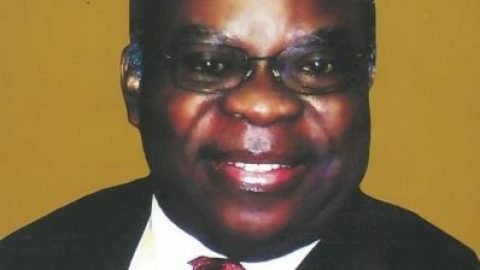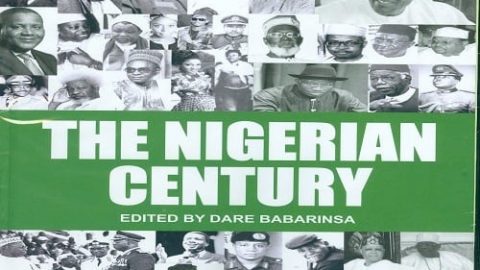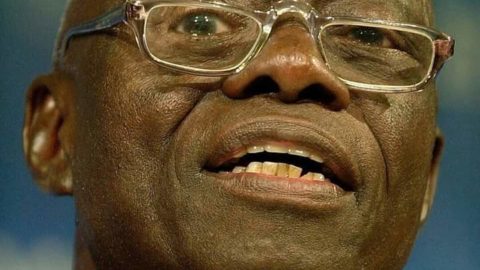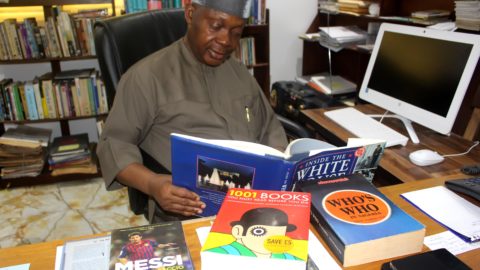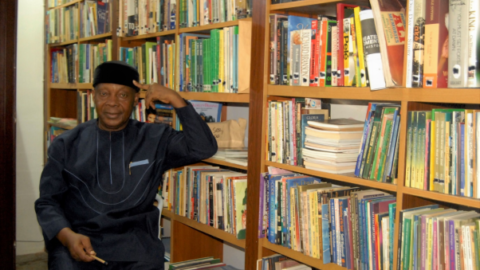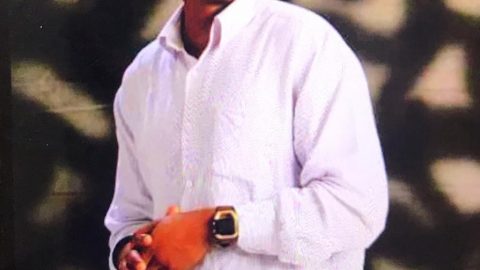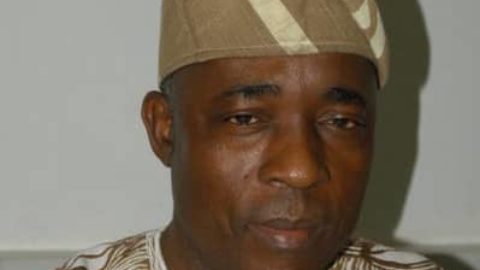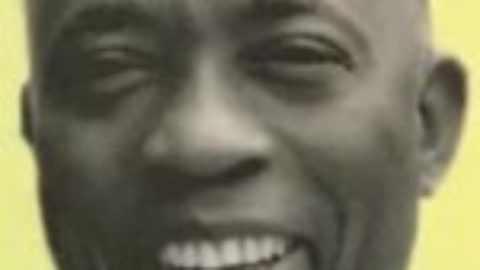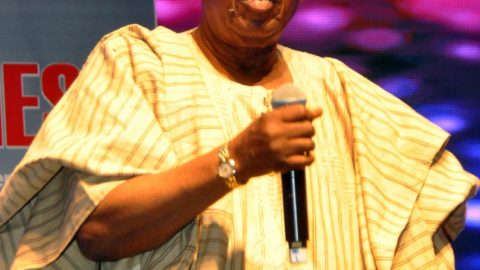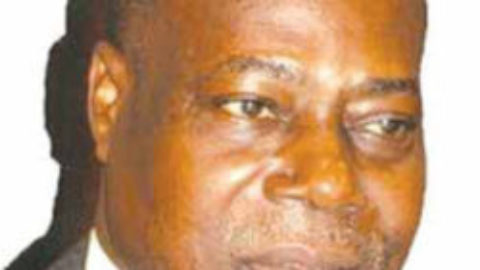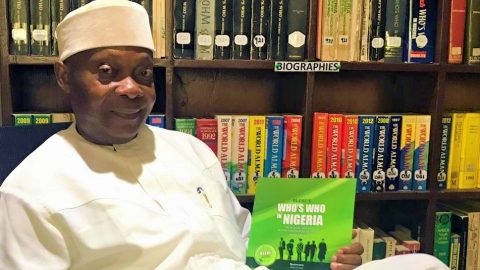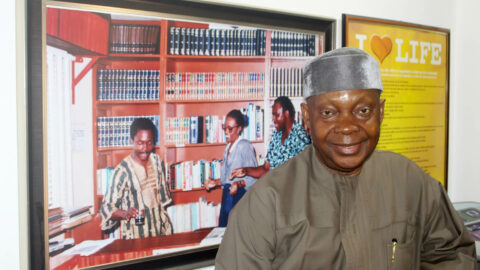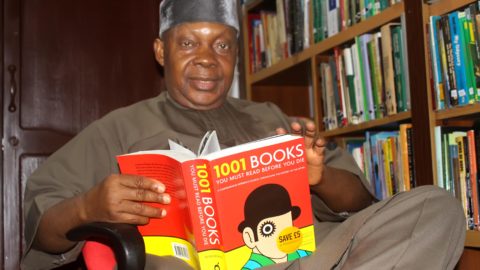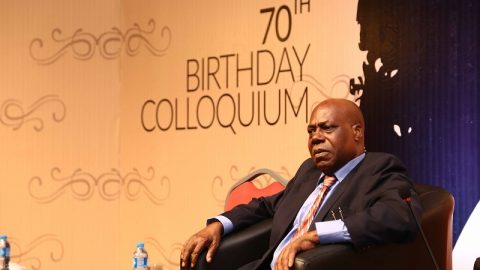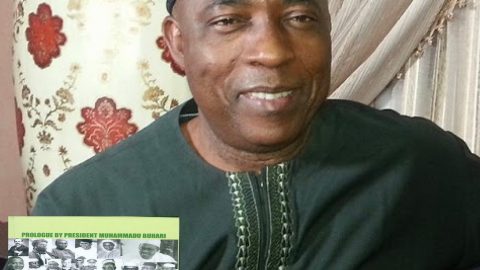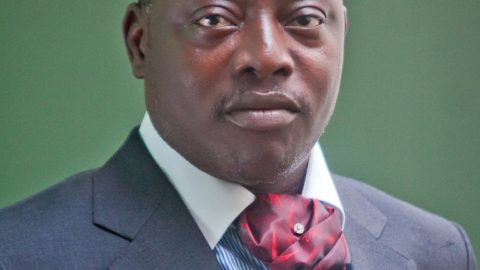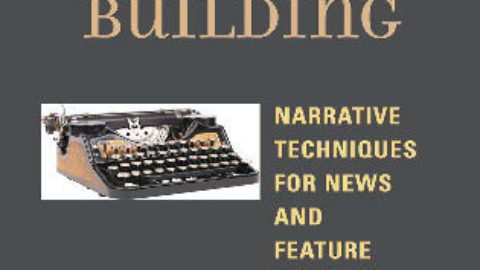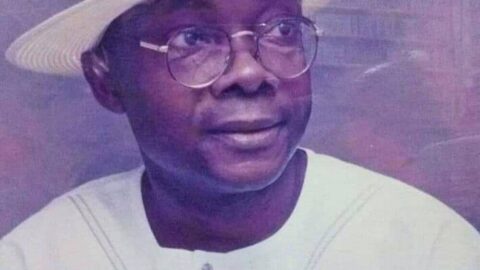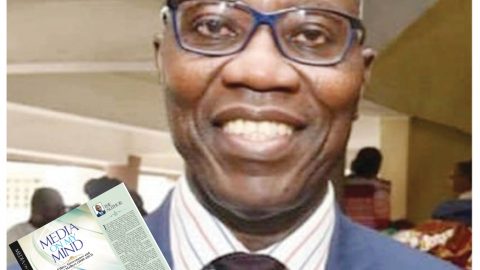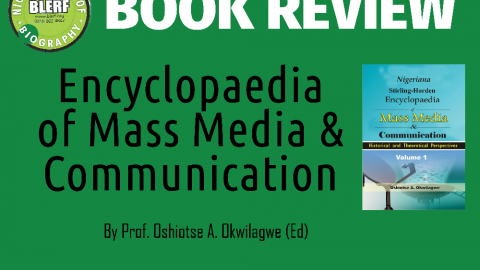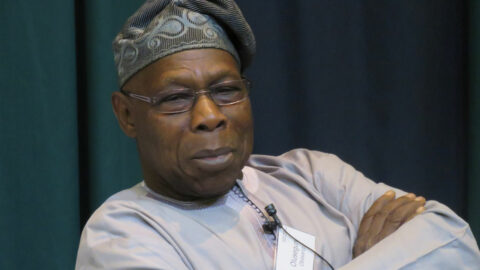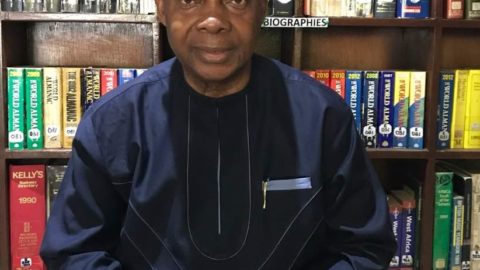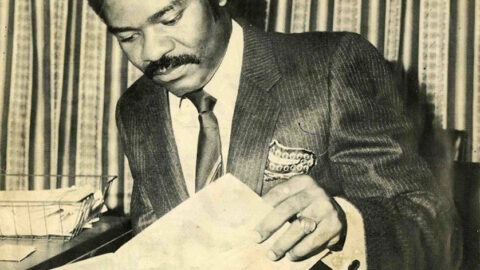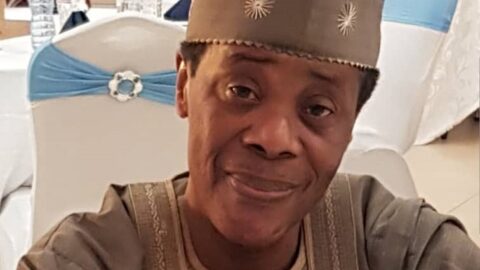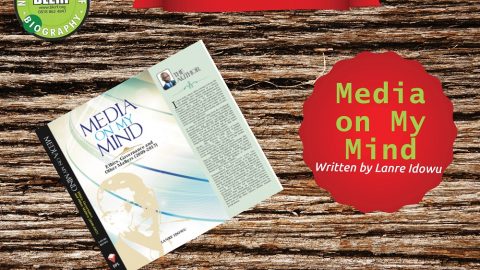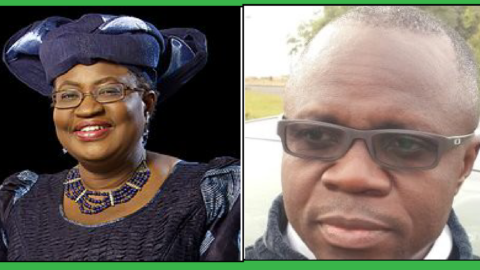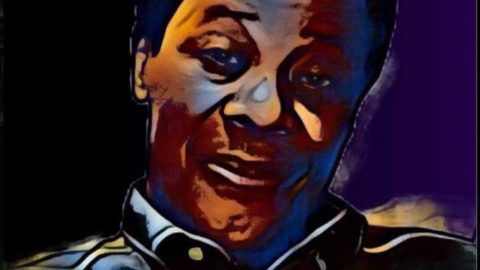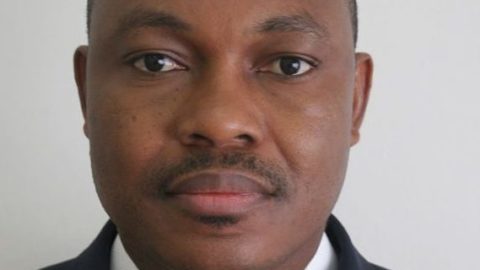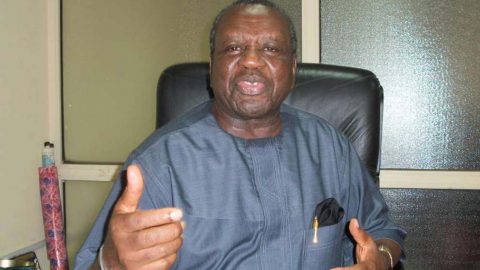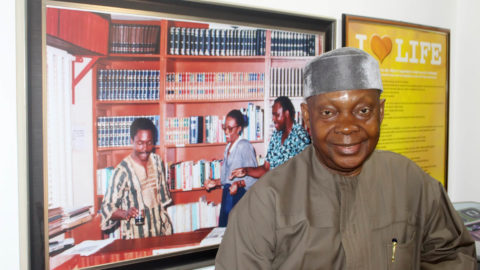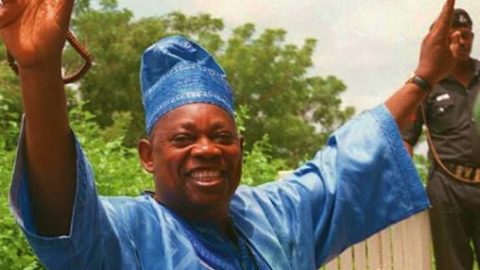A Review of Encyclopaedia of Mass Media & Communication
Edited by Prof. Oshiotse A. Okwilagwe
Volume Three of this well-loaded book has 24 chapters and covers 432 pages. This collection focuses on social and entrepreneurial imperatives of mass media and communication. It opens with Segun Odukomaiya and Olusola Oyero both of Covenant University who write on Media Agenda-setting on Health Issues during the 2007 Nigerian Election Campaign.
Another topic on health: The Health Crisis and the Communication of Health Issues in Non-Knowledge Economics is discussed by Herbert Batta of the University of Uyo. Batta has consistently brought his experiences in media engagements in Nigeria, Africa, Europe, the Americas, and Asia to bear in his burgeoning career as an academic. More than anything else, he has striven to contribute meaningfully in a modest way to reversing the near absence of science communication research in Nigeria.
Emmanuel Ejomafuvwe Akpoveta of Delta State Polytechnic discusses two thrilling topics: The Impact of the Mass Media in Restructuring the Nigerian Political Structure; and Re-awakening the Supremacy of Nigeria’s Diverse Cultures: The Mass Media Approach.
An unusual topic: Financial Public Relations: Principles and Practices, is handled by Omowale Adelabu of Redeemer’s University. It is followed by Meetings, another unusual one-word-topic presentation by Femi Adedina of Adesanya Ogunniran College of Education, Lagos. Lanre Olaolu Amodu of Covenant University writes on Media Analysis for Public Relations.
Ijeh Nkemdilim Patrick of Delta State University takes on two broad issues: Health Communication in Nigeria: An Overview of the Role of Broadcast Advertising in the Management of Problems of Communicable Diseases; and: Factors that Encourage International Advertising: An Overview. In addition, Olu Arowosegbe of Osun State Polytechnic focuses on: Legal Status of Advertising.
Another related topic: Advertising Campaign Management is presented by Ben U. Nwanne of Delta State University. Isika Gideon Udechukwu of Delta State Polytechnic writes on: Advertising: Concept and Limitation; while Audience’s Perception of Advertising Claims on Billboards in Kano Metropolis is by Mainasara Yakubu Kurfi of Bayero University, Kano.
An interesting topic: The Media and Violent Conflict Reporting is presented by Professor Nkereuwem Udoakah, University of Uyo. An acclaimed political communication specialist, Udoakah’s major foci of concentration have been in political rhetoric, political advertising, and political public relations. He believes that persuasion; promotion and mutually beneficial goodwill should drive development efforts in Nigeria, and that politics—rather than being seen as an avenue for self aggrandizement—should necessarily lead to the improvement of humans.
The Implications of Copyright for Broadcasting in Nigeria is written by Professor Oshiotse A. Okwilagwe of the University of Ibadan—presently the Vice Chancellor of the University—and Osibve A. Okwilagwe of Auchi Polytechnic, Edo State.
The Uses and Gratifications Theory of Mass Communication: An Expository Discourse is narrated by Muyiwa Popoola of Ajayi Crowther University in Oyo State. An extraordinary discourse: Rural Community Journalism in Nigerian Media is by Godwin Ehiarekhian Oboh of Benson Idahosa University, Edo State. It is followed by Media Ethics, Professionalism and Reportage of the Electoral Reform Process in Nigeria by Danjuma Gambo of the University of Maiduguri.
Two important topics: International Public Relations, Parts 1 and 11 are presented next by Ekeanyanwu Nnamdi Tobechukwu of Covenant University; followed by Changing Family-life: Communication Media for Adolescents in Nigeria by Koblowe Obono of Covenant University and Oka Obono who teaches sociology at the University of Ibadan.
Nigerian Mass Media Financial Autonomy: Its Implications for National Development is explored by Erhi Moses Akpesiri while Fidelis N. Amatokwu of Delta State University discusses The Need for Indigenous Instructional Materials Versus the Menace of Dearth of Plagiarised Works of Mass Communication in the 21st Century Nigeria
The volume closes with an interesting research entitled: Print Media Coverage of Mental Illness and Its Sufferers in Delta State of Nigeria: Implications for Public Policy. It is beautifully handled by Ewhrudjakpor, C who teaches sociology and psychology in Delta State University.
Here we are finally in Volume Four of the book. With a whooping 27 chapters, this volume covers 441 pages. It takes a critical look at the technological imperatives of the mass media and communication. This volume tries to answer the big questions regarding the application of modern technological equipment in news gathering and transmission—whether in the electronic or the print media.
Ekeanyanwu Tobechukwu of Covenant University opens this volume with two analysis: International/Foreign Correspondence for the Modern Journalist: Satellites and Global Mass Media; Parts 1 and Part 11. His insightful presentations are followed by Science and Technology Report by Alex Umerri of Benson Idahosa University who also discusses A Practical Approach to Radio-Television Script Writing in another chapter.
The Challenges and Prospects of the Internet and Interactive Media in Nigerian Advertising Scene; and Satellite Television Content Preference Among Youth are two technology-related topics discussed by Ogheneruke Presley Obukoadata of Delta State Polytechnic. He is followed by Olise Festus Prosper of Delta State University who writes on The Dynamics of International Communication in the Era of New Media Technologies; and News Writing for the New Media: An Insight for the Nigerian Journalists.
Herbert Batta of the University of Uyo, returns with Communicating New Medical Technologies, Innovations and Researches to African Media Audience. His researches into the media and their coverage of alternative energy, climatic change, nanotechnology, alternative medicine, female genital surgery, etc. are noteworthy. Recently, perhaps to generate more interest among peers and others, Batta’s research focus has been on attitudes, perception and opinions involving science communication in Nigeria among journalism students, communication academics and science scholars.
Television Drama: From Script to Screen is presented by Adeniyi Kehinde Abimbola who teaches theatre arts at Adeniran Ogunsanya College of Education in Lagos while the next chapter is by Chinenye Nwabueze and Chizoba Nwabueze both of Anambra State University, who discuss Enhancing Entrepreneurship Through the Use of ICTs: Implications to Food Security in Nigeria.
Aesthetics in Nigerian Television Production: A Vital Aspect in Viewer’s Experience is a topic by Dike Ibemesi of Nnamdi Azikiwe University. He goes further to discuss A Practical Approach to Radio-Television Script Writing. Another author, Eserinune McCarty Mojaye of Delta State University takes a look at the Environment of the Broadcast Media in Nigeria.
Umaru A. Pate of the University of Maiduguri takes on two key issues: Understanding Different Democratic Practices Through Research: A Review of Trends in Political Communication Studies; and Strengthening Media Capacity for Investigative Journalism Through Institutions’ based Curriculum. There is also Broadcast Commentary and Critical Writing; and Radio/Television News Production by Majority Oji of Delta State University.
Copyright and the Music Industry in Nigeria is handled by Professor Oshiotse Andrew Okwilagwe of the University of Ibadan and Osibve Abdulai Okwilagwe who teaches General Studies at Auchi Polytechnic. Professor Okwilagwe also pairs with Gabriel Aine Obinyan of Library, Archival and Information Studies at the University of Ibadan to discuss Impact of Information and Communications Technologies on Book Publishing in Nigeria: Problems and Prospects.
Professor Nkereuwem Udoakah of the University of Uyo shows up again with an interesting discourse on Long Distance Learning in the Information Age. Udoakah left the newsroom in the mid 1980s. He trained in Ghana and the United Kingdom before switching to the academia. He believes that if government and politics alongside the media do not coalesce their efforts toward improved education, health, prosperity, and wealth; then they are useless and meaningless.
Omowale Adelabu of Redeemers University is the author of Contemporary Yoruba Music and the Broadcast Media: A Synergy; Charles Obot of the University of Uyo handles Radio/Television News Scripting, Reporting and Production; while Kenneth, Asor Tsebee of Benue State University takes two issues: Role of Aesthetics in Radio, Film and Television Broadcasting; and News Gathering and Presentation in Television Broadcasting.
From Ajayi Crowther University comes Solomon S. Ntukekpo with The Role of Information Technology in the Broadcast Media Coverage of Nigerian Financial Market while Eugenia A. Okwilagwe of the Institute of Education, University of Ibadan discusses Learning Outcomes: The Imperatives of Evaluating Course Materials in Mass Communication Curricula.
One of the editors of the four volumes, Professor Des Wilson, closes this volume with a detail discussion on The Nature and Content of Communication Textbooks in the 21st Century: New Approaches, Dimension and Scope. Wilson’s area of scholarship has consistently revolved around African traditional systems of communication—an area in which he has since become an iconoclast. While basking in the glitter of massive media and big data, Wilson believes that we should pay more attention to the little media, oral media, non-verbal modes, and symbolic forms of communication.
Considering the strictures and paroxysms of a post-modern globalised world, Wilson has always urged Africans and their communication systems to underscore the eminent importance of the psycholinguistic foundations of communication. He tasks Africans to be sure to deploy traditional media systems to fight human rights violations, illiteracy, hunger, ignorance, conflict, environmental degradation, poverty; and thus engender development across Africa.
It was observed in the course of reading through the book that majority of the authors of researched papers in the four volumes are either from Delta State Polytechnic or Delta State University. Only five ladies made contributions to the book while only three northern teachers of communication studies—one from the University of Jos and two from the University of Maiduguri—are published in the four volumes.
Either deliberately or ignorantly, there is no information whatsoever in the book about any of the authors of researched papers or members of the editorial team. That leaves any researcher—including a reviewer—in a difficult situation regarding the pedigree of the writers of the book. For instance, apart from Professor Udoakah, it is not known whether any of the other authors of the book has ever worked in any media organisation. Although the book is about media and communication, not all the authors are media specialists.
A beautiful book all the same—timely and rich in content. Available information shows that the editor, Professor Okwilagwe has worked with over 450 authors on various publishing projects in Africa. His research focus is said to be on the influence of information science on national development. His research works has honed new perspectives on synergy between library, archival and information science and allied disciplines of publishing, bibliography, copyright and national development.
Does this book have an e-edition—for easy access by scholars, researchers and media specialists across the world? Not yet! But it would be good to do that. Just imagine if Amazon.com were to handle the marketing of this well-thought-out book, that would be phenomenal!
BY SAM AKPE, Consulting Editor, Book Review, BLERF


